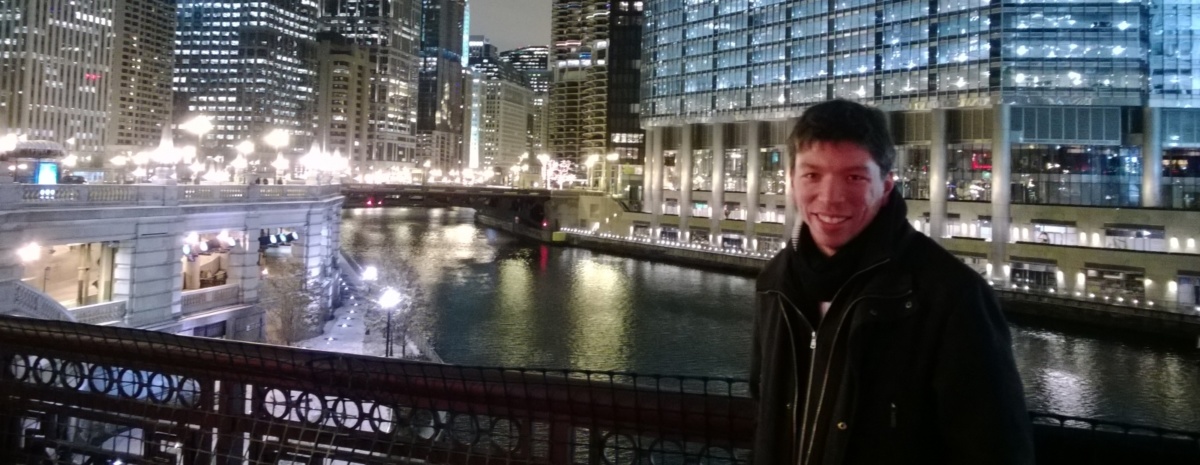Here’s a very quick example of one gigantic leap in logic:
It is amazingly unpredictable how some old patients survive when everyone has given up hope and some young patients succumb to disease. Makes me believe in God.
This was posted in the comments of a blog post about US healthcare reform, and not in a theological discussion, and so I intend to use it merely as an example of a strange kind of thinking. Broken down into parts:
“It is amazingly unpredictable how some old patients survive…” – is it? You can suggest that a patient only has a 10% chance of survival based on overall survival rates, and thus predict that they will die with fairly good odds behind you. Still, they might not. Is that amazing, or simply how percentages work? If I flip a fair coin I have absolutely no way of predicting whether it will come up heads or tails at all… isn’t that more ‘amazingly unpredictable’?
“…when everyone has given up hope…” – and in the cases where everybody hasn’t given up hope, is a patient’s survival consquently less amazing? I suppose you could justifably say it was less amazing to the people doing the hoping themseles, but why so for you?
“…and some young patients succumb to disease.” – yes. Does amazingness really extend to the fact that young people can die?
“Makes me believe in God.” – woah. You can now invoke God to explain the concept of ‘surprises’? Although perhaps it has to be a good surprise. Consider this:
It is amazingly unpredictable how some young patients succumb to disease when everyone expects them to pull through and some old patients survive. Makes me believe in God.
It is truly extraordinary when people invoke the idea that a wonderous event should make one believe in God whilst in the very same sentence highlighting a tragic event as a counterexample that then isn’t counted against the idea of a God.
Pre-emptive theist response
“Young people dying unexpectedly is all part of God’s plan which fulfils an ultimately good end.”
This invalidates the entire argument we began with. If you presume that everything belongs to an ultimately good ‘plan’ then an elderly patient unexpectedly surviving is no different from, say, an elderly patient dying as expected. We only got to God in the first place by deciding the the former event was in some way ‘especially good’ and contrasting it with other, less good things.
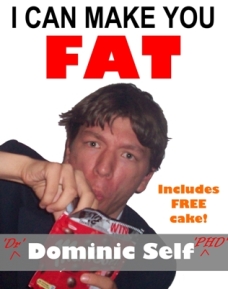
I Can Make You FAT’
Finally! A career choice which utilises my particular talents and skills…
(Dominic Self is available for interview.)

‘National Rail Tickets …made simple!’ and ‘Fine’
The rains cometh! Yes, as a most-welcome shower finally relieves us of a prolonged bout of horrid humidity, I feel a happy boost which prompts me to get on with blogging about our trip to Liverpool. Some photos:
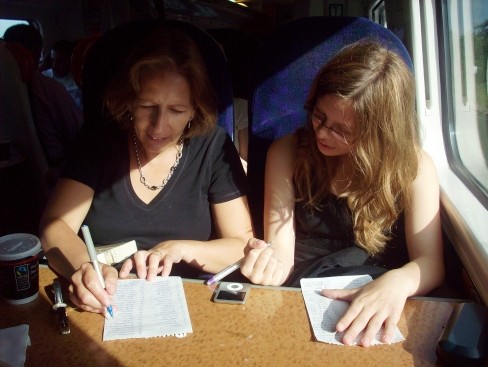
See, I told you the train works out as more expensive than the flying carpet

Don’t shout about it, but is photo-autism on the retreat?
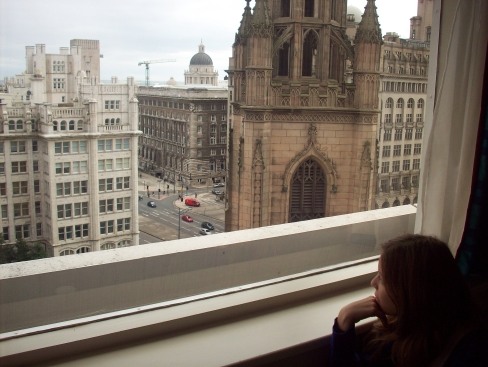
A room with a view
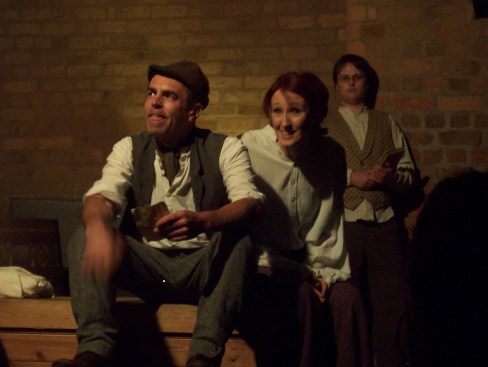
If I only wait a little longer I’ll soon be back in fashion!

Put your hands up for De… erm… Liverpool
Going through the album and choosing which photos to display actually brought up the curious thing about Liverpool: try as I might, I couldn’t find anything which really screamed where it was taken. I actually asked someone there what they would put on a postcard to identify the city – akin to Parliament or the London Eye, or the Bullring for Birmingham – and he couldn’t really think of anything aside from the docks. Don’t get me wrong, there were plenty of impressive buildings, so maybe it’s just my fault for not recognising them as quintessentially Liverpudlian. The giant outdoorsy and slightly creepy shopping centre Liverpool One certainly didn’t qualify. Anyway, we did have a great time and packed in art galleries, museums, a bus tour and the cinema alongside (of course) plenty of eating and drinking – thanks to mum for organising it all! ![]()
Last night I ended up staring at the beautiful night sky above Queen’s Park (no lighting – hooray!) with Joshua, Niamh and Matthew. Matthew seems to bring out the theatrics in me – we’d already ended up encircling each other in the pub shouting things like “but what is a fact?” far louder than the management of The Corrib would have ideally wished for. A lovely evening!
I hope no-one is now disappointed that there was no further mention of the promised dhododendrons…
I stand rightfully accused of leaving far too long between posts, and then trying to shove a week and a half’s worth of stuff in one go, so here is a little snatched bit of blogging before an early night! A couple of things to rave about: first, Psychoville, which was introduced to me whilst visiting Oliver and Abi’s – is really good – and I am now working my way through. Catch it on the iPlayer before it disappears! Also, today at the aquarium with Lucy, Abbi and Sanna was great ![]() (I have a real urge to go into primary school mode now, and say that we say lots of fishes and sharks and even a turtle!) Alix was round for dinner this evening, who always makes for great company, and tomorrow I am off for a short break to Liverpool with mum, Katie and Lucy.
(I have a real urge to go into primary school mode now, and say that we say lots of fishes and sharks and even a turtle!) Alix was round for dinner this evening, who always makes for great company, and tomorrow I am off for a short break to Liverpool with mum, Katie and Lucy.
So, yeah. All’s very well! Goodnight and sweet dreams* ![]()
*i.e. Don’t have a series of nightmares, like I managed to, including one in which I was a cameraman going around the homes of various targeted people in Zimbabwe as shots were going off around us. I have a very vivid dream memory of turning around and thinking – ‘how come I don’t have a bullet proof vest on but the fancy BBC reporter behind me does?’
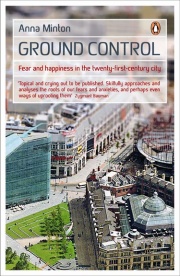
Ground Control
At the request of Esmaa Self, Twitter friend with an obviously cool surname, I thought I’d do a little review of Ground Control by Anna Minton. The book is about the social and psychological impact of British city and housing design, a topic which – to anyone who’s heard me go on about how nice the centre of Leeds is without cars – is clearly a topic close to my heart. It’s also an unabashed polemic against privatisation, the decline of local democracy and British attitudes towards shared spaces and crime.
Divided into three parts, the first – ‘The City’ – deals with the creeping privitisation of large areas of formerly public land in cities, to be policed and controlled by private security firms with their own rules about what behaviour is acceptable within. ‘The Home’ attacks the growth of gated communities and ‘defensible space’, which acts to increase fear of crime as well as strangers in general, robbing cities of the natural protection afforded by strangers in public places. It also lays into the termination of new social housebuilding under Thatcher, and the community-displacing regeneration projects of more recent years. Finally, ‘Civil Society’ challenges the idea that anti-social behaviour is at the root of further crime, arguing that policies such as Blair’s ‘Respect’ agenda are counter-productive in attempting to institutionalise that which can only ever really be provided organically by local communities.
I’m in two minds about this book, and although overall it is well deserving of being read, I’ll start with the negatives in order to end on the high which it deserves. Firstly: it’s perhaps obvious that this is the first full length book from a successful journalist, as there is sometimes an odd pacing which betrays a determination not to go for more than a couple of pages before repeating the central argument of the piece. (She also misuses the word ‘ironically’. Frequently.) More seriously, I’m wary of international comparisons which fall into the oft-repeated technique of reducing the US to wild freemarketism and ‘nice’ continental Europe. Consider the following:
“This is a very European way to enjoy life, window shopping, wandering around, doing nothing, going to the market, taking in the café society of the continental squares and piazzas… rather than spending our way out of recession, we need to look at real alternatives, based on a more European rather than American model, which will moderate the architecture of extreme capitalism…”
Really, though? Europe has one homogeneous model, stretching right across the continent? And before we write off America, shouldn’t we remember that this is the same country which maintains a ginormous system of National Parks? I’m not saying there’s nothing at all in the comparison, but it’s become such a trope that I’d like a little more nuance and case study rather than resorting to ‘Europe’ and ‘America’. Furthermore, it’s a dangerous path to go down, because if you associate ‘markets’ with ‘America’ (i.e. one side of a binary divide) then you lose the ability to suggest workable market mechanisms by which a different culture might be achieved. It is all very well suggesting that there is massive market failure in planning and housing – there is – but that doesn’t mean that the state cannot alter economic incentives in order to change things.
However, this shouldn’t obscure the fact that I do agree with the majority of Ground Control – its central arguments are largely valid, and on an issue which deserves wider public debate. It is important that shopping alone does not come to dominate city centres, and that we retain public, open spaces where citizens are governed by the common rule of law, not private security rules. If we don’t then politics becomes powerless, and so do people. Gated communities in Britain are as vile as they are totally unnecessary. Banning councils from investing ‘Right To Buy’ profits in more social housing was an unqualified policy disaster, fermenting the tensions which we see today being exploited by the likes of the BNP. And, more often than not, it is indeed fear of crime which is a far more debilitating problem than actual crime itself. Segregation by wealth will make both worse.
Minton is very polite, and so never says anything like ‘…and we need thriving British cities, not more suburbia’. So I’m going to say it instead: …and we need thriving British cities, not more suburbia. Suburbia can, of course, inculcate shared public spaces, but does it really have the scale to answer today’s problems? Young people complain that there is nothing to do, the elderly find local services increasingly deemed unsustainable (c.f. the Post Office), whilst everyone needs an alternative to the ghastly reliance on the private car to shuttle back and forwards from place to place without ever really travelling. And aren’t the cities best placed to provide that infrustructure, that diversity, that ‘hustle and bustle’ which Minton euphemistically refers to? A place has got to have more than shopping, but it’s also got to have more than housing plus the odd corner shop. British cities may have their problems, but they’re also worth fighting for, and we abandon them at our peril.
